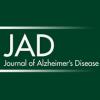30 March 2015
Severe Alzheimer's Patient Responds to Bryostatin Treatment
Researchers at the Blanchette Rockefeller Neurosciences Institute and the Marshall University Joan C. Edwards School of Medicine announced their findings from a new study entitled, "PSEN1 Variant in a Family with Atypical AD." An Alzheimer patient with very severe disease, genetically confirmed to have a known variant of PSEN1, showed promising benefits during treatment with the drug Bryostatin 1.
10 March 2015
Surprising finding provides more support for Alzheimer’s being an autoimmune disease
Brain levels of the lipid ceramide are high in Alzheimer’s disease, and now scientists have found increased levels of an antibody to the lipid in their disease model. While some members of this lipid family are a plus in skin cream, inside the brain, ceramide appears to increase beta amyloid production and help the iconic plaque kill brain cells in Alzheimer’s, said Dr. Erhard Bieberich, neuroscientist at the Medical College of Georgia at Georgia Regents University.
2 February 2015
Decreases in Short-Term Memory, IQ, and Altered Brain Metabolic Ratios in Urban Apolipoprotein ε4 Children Exposed to Air Pollution
A new study heightens concerns over the detrimental impact of the APOE ε4 allele, the most prevalent genetic risk for Alzheimer’s disease, upon cognition, olfaction, and metabolic brain indices in healthy urban children and teens.
2 February 2015
New study postulates the role of dietary advanced glycation end products in the risk of Alzheimer's disease
Our new paper published in the Journal of Alzheimer's Disease provides evidence that cooking foods at high temperatures increases the risk of Alzheimer's disease. This study looked at the content of advanced glycation end products (AGEs) in national diets and clinical studies comparing and compared total AGEs to Alzheimer's disease rates.
20 January 2015
First Evidence of Potential Efficacy of Tau Aggregation Inhibitor Therapy in Alzheimer’s Disease
The results of a Phase II clinical trial of a Tau Aggregation Inhibitor (TAI) in AD, conducted by TauRx Therapeutics Ltd (a Singapore incorporated spinout from the University of Aberdeen), provided the basis and rationale for subsequent Phase III clinical trials of a TAI in AD currently in progress.
19 January 2015
Prostate cancer drug slows memory loss in women with Alzheimer’s disease
Women with Alzheimer’s disease showed stable cognition for a year when a drug that is more commonly used to treat advanced prostate cancer was added to their drug regimen, according to a new study from researchers at the University of Wisconsin-Madison.
12 January 2015
A virtual reality brain training game can detect mild cognitive impairment, a condition that often predates Alzheimer’s disease
Greek researchers demonstrated the potential of a virtual supermarket cognitive training game as a screening tool for patients with mild cognitive impairment among a sample of older adults.
8 January 2015
Nasal Spray with Insulin Equivalent Shows Promise as Treatment for Adults with Mild Cognitive Impairment, Alzheimer's Dementia
A man-made form of insulin delivered by nasal spray may improve working memory and other mental capabilities in adults with MCI and AD, according to a pilot study led by researchers at Wake Forest Baptist Medical Center.
15 December 2014
Running and Walking May Lower Alzheimer's Disease Risk
An estimated 5 million Americans aged 65 and older have Alzheimer’s disease. As drug companies struggle to find a cure, new research from the National Runners’ and Walkers’ Health Study suggests that exercise earlier in life may substantially reduce Alzheimer’s disease mortality.
1 December 2014
New Data Suggest Treatment Effect on Cognition Leads to the Treatment Effect on Function in Patients with Mild Alzheimer’s Disease
Eli Lilly and Company announced results from new analyses of two Phase 3 trials evaluating the relationship between cognitive and functional treatment effects in patients with mild Alzheimer’s disease. Based on post-hoc analyses of the Phase 3 trials, the findings suggested that cognitive deficits were more apparent than functional deficits in mild Alzheimer’s disease. The apparent treatment effect on cognition based on these analyses led to the apparent treatment effect on function.















